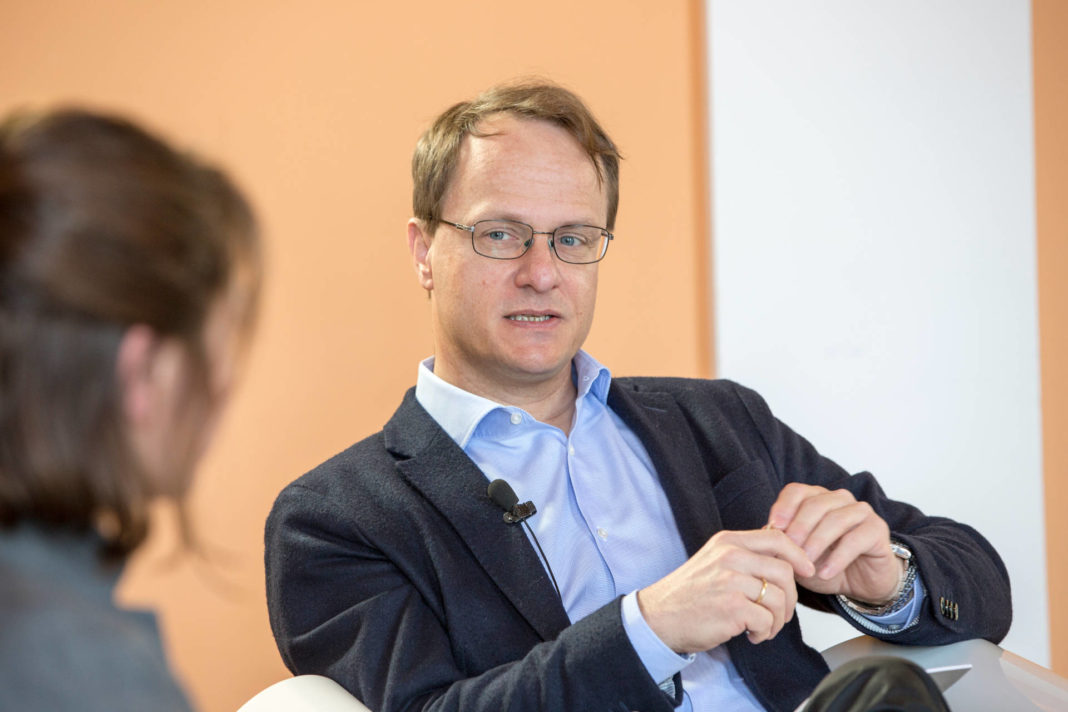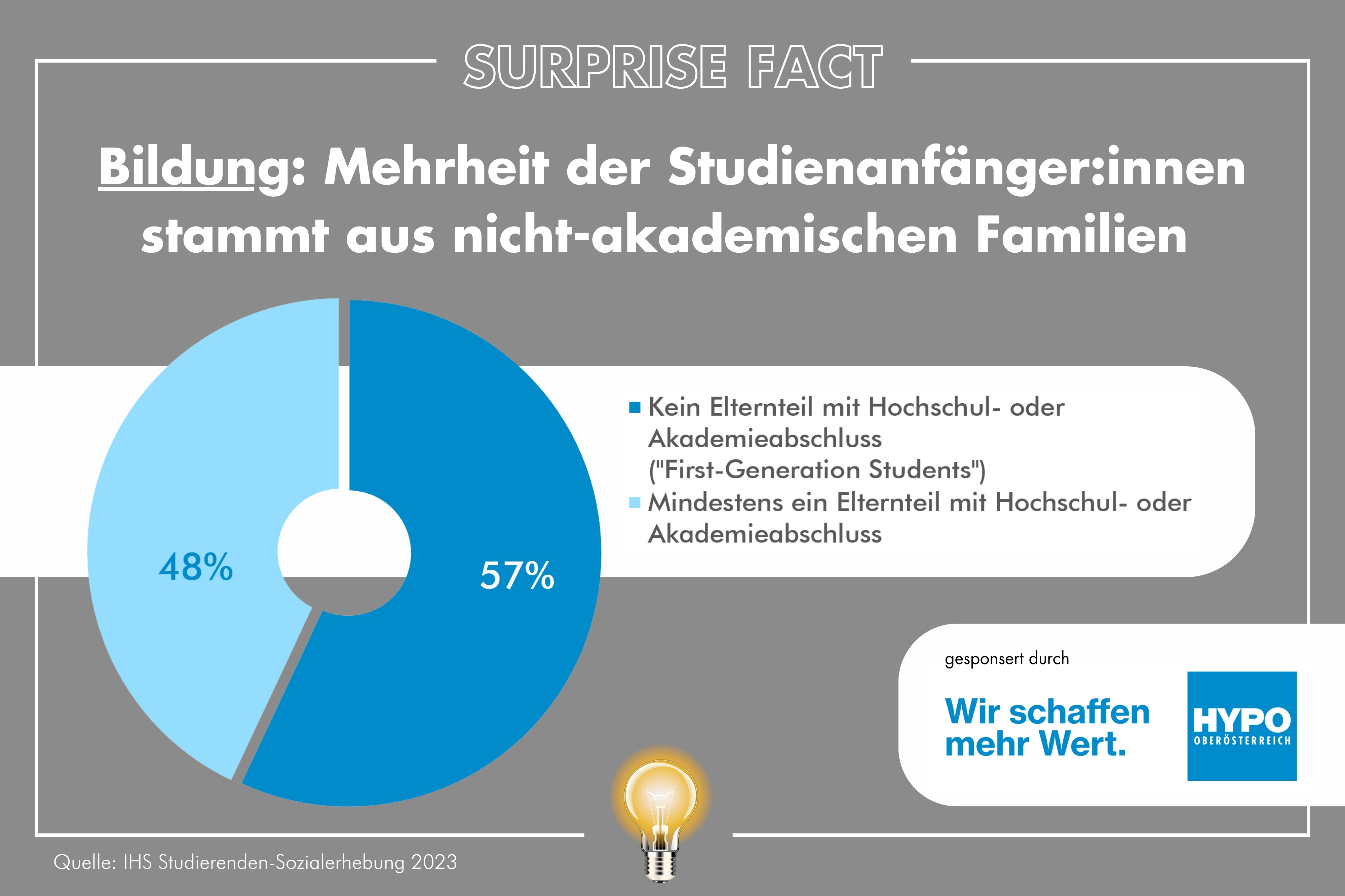Great Britain leaving the European Union, the election of Donald Trump as the 45th President of the United States of America or terror attacks in the heart of Europe – these are decisive examples of last year‘s developments that have astonished, startled and baffled the world. Events like these that shake our sense of security question everything we have learned and are familiar with while stirring up fear of change and making us believe that everything is out of control. At the seventh SURPRISE FACTORS SYMPOSIUM, we discussed phenomena like these, their implications, risks and opportunities with international experts on photography, politics, business, and journalism.
„Europe means bringing people together because they are so different.”
Against the background of social, economic and political events, we asked ourselves at this year’s symposium: ”Is everything out of control?“ One thing became clear in the discussions: The greater picture reveals that not everything is as much out of control as it seems to be. Uncertainty and instability are often the factors that guarantee not only the continued existence of a society, but also its further development. They are factors that are needed to attain security, stability and, at the end of the day, freedom in our social coexistence. But which variables influence control; how should we deal with apparent or actual losses of control, and how can we use them for ourselves in the future? These questions were the subject of profound discussions.
A question of normalcy
To live in war zones is unimaginable for almost all of us. The situation there is too uncertain and uncontrollable; too much is left to chance or destiny. However, what we fail to see is that even war has its perfidious normalcy. People in war zones have adapted their lives and follow special routines and patterns of action in their everyday life. To them, they live a normal life. The stories of Andrea Bruce, who has made this kind of normality the center of her work, show us that the perception of the existence or the loss of control is, above all, a question of perspective and normativity. It is about the personal perception of what is normal for yourself and the environment you live in.
Loss of control as an opportunity for innovation
Against the same background, we asked ourselves in the discussions whether the loss of control could lead to more development and innovation. The talks made clear that crisis in general can offer opportunities for new things. However, what kind and what extent of loss of control should you allow? How you deal with it is crucial for the potential development and innovation in a society. Many challenges of human history have led to further developments, some of them more desirable than others. It is therefore the responsibility of all of us to farsightedly create free spaces for new things and to approach new opportunities openly since, in the end, every system lives on change and progress. This finding is essential if you do not want to succumb to standstill as a society but want to lead the way towards innovation and progress.
Control and responsibility
What is the right amount of control? And who is responsible for the exercise of control? It is not an easy task to find the right balance for control. The understanding of what should be controlled and where more control is a burden and hinders progress is all too diverse. In order to reach the presumably right level of control, we can no longer delegate the responsibility for answering the questions raised above to others.
„Do we have to give up control consciously in order to be creative?”
For the exercise of (the right amount of) control is up to each and every one of us, depending on the areas in which we operate. We therefore consider it a central element of a functioning society to take an active part in the societal policy process and, within the scope of our possibilities, to exercise control or deliberately avoid it. For whoever is inattentive and evades responsibility, will ultimately lose control.
Control through emotion
As part of our discussions, we also asked ourselves how you can gain control over opinions or a society. The answers to this question were just as multifaceted as the question itself. However, they had one thing in common: You achieve control mainly through emotion, not through logic or anonymity. A photo, a political decision, the relevance of news or media – they all subsist on playing with our emotions. Their success stands and falls with the ability to evoke emotions in their audience and thereby control them. Especially populist movements have already understood this fact and have repeatedly made use of it. In the age of emotional fear-mongering, we therefore see it as our task to oppose this movement decisively.
Looking ahead by losing control
Ever since last year’s developments, nothing is as it was for many people. Europe and the world have been shattered to the core; what was familiar has been destroyed, and all we had learned has been put to the test. What is left is uncertainty, anxiety and fear. However, the intense conversations, insights and personal impressions have shown us that crises are not always the specter we think they are. If we practice mindfulness, they are sometimes actually predictable and, even when they hit us with unmitigated force, quite manageable.
„To change something means losing control, but it’s also a chance for development.”
In order to be able to use a loss of control that is very close or already existing, you do not only need a great deal of mindfulness for the present; you also have to look into the past; you need the courage to tackle things and the ability to implement what you have learned. If we combine these skills within ourselves, we can already learn today for the challenges of the future from the losses of control in the past and therefore face them with far-sightedness rather than with fear and insecurity.







